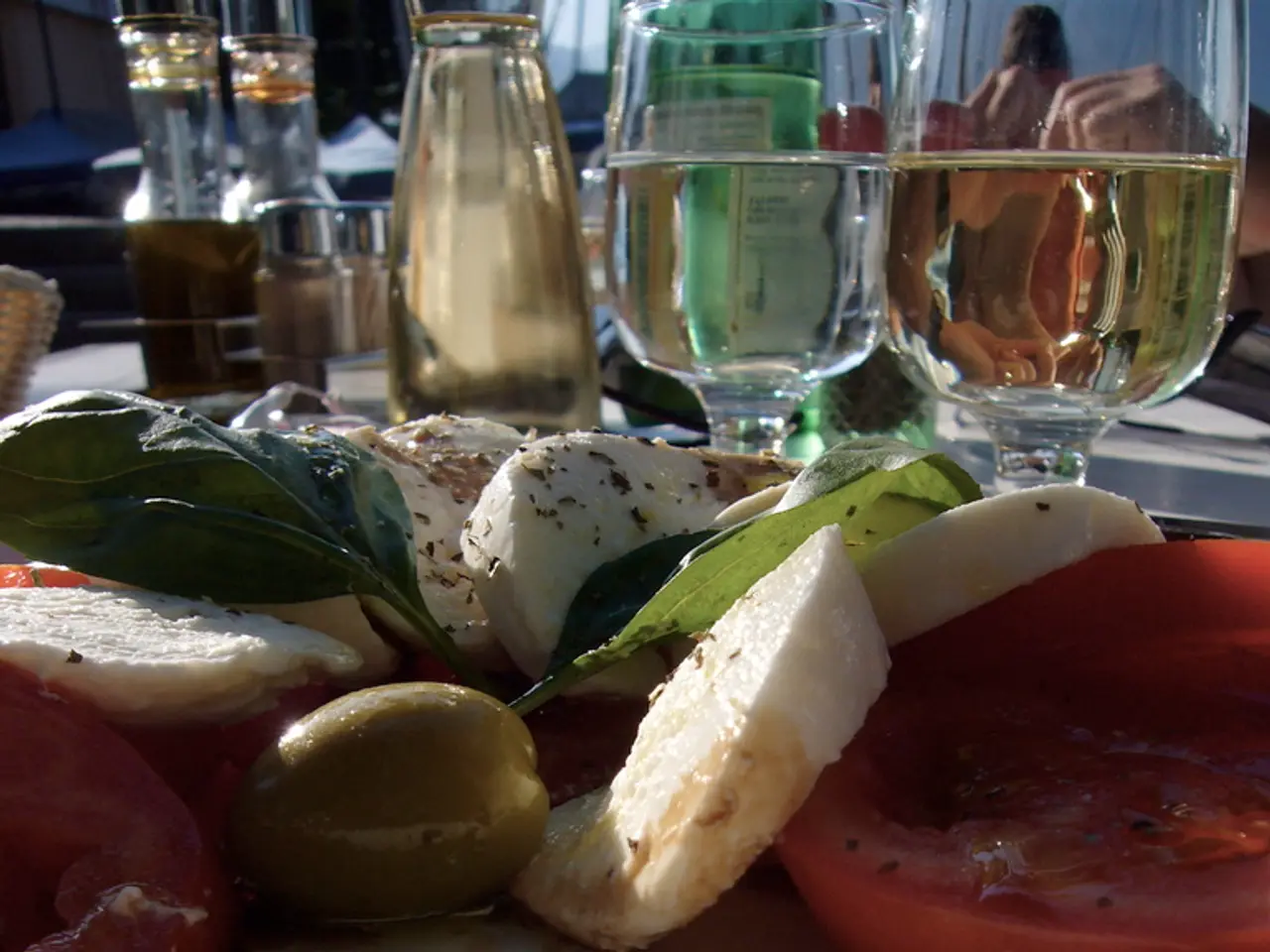Financial hardship dealt to the food and wine industry, totaling an estimated 2.3 billion dollars in taxes
Italian Agro-food Sector Faces Challenges Amidst US Tariffs
The Italian agro-food sector is facing a tough time due to the imposition of tariffs by President Trump, with key products such as cheeses, processed tomatoes, wines, filled pasta, and extra virgin olive oil facing tariffs ranging from 15% to 25%.
The president of Federalimentare, Paolo Mascarino, has stated that a 30% tariff exceeds the threshold of tolerability for businesses. This sentiment is shared by Coldiretti, a tycoon in the Italian agro-food sector, and Confagricoltura, with their leaders considering 30% tariffs as unacceptable.
For every dollar spent on high-quality European goods, such as wine, up to 4.50 dollars are activated in the American economy, according to Federvini. However, the tariffs have made Italian products considerably more expensive and less competitive in the U.S. market, leading to a stall or decline in exports. Last year, Italian food and beverages earned 7.8 billion euros from exports to the United States, but if the tariffs are implemented, the aim to reach 9 billion euros from exports to the United States this year may not be met.
The Italian agro-food sector proposes streamlining bureaucratic burden, reducing energy prices, and facilitating access to credit as solutions to strengthen the competitive capacity of the sector. Mascarino also suggests urgent and structural interventions to address these issues.
In response to the potential tariff of 2.3 billion euros on Italian food and beverages from exports to the United States, industry leaders such as Ettore Prandini, president of Coldiretti, have called for negotiated agreements rather than retaliatory tariffs, emphasizing the unsustainable burden on exporters. Coldiretti's secretary-general Vincenzo Gesmundo criticized the EU's weak stance and urged stronger protections for Italian businesses to address this asymmetrical trade relationship.
A recent deal between the U.S. and EU sought to ease tensions by reducing tariffs on European goods to 15% from previously threatened levels of up to 30-200%. However, this has been met with concern from Italian producers, especially in Tuscany, where wine exports to the U.S. constitute a significant share of sales. The Brunello di Montalcino Consortium and AVITO have warned that even the reduced tariffs threaten competitiveness and stressed the need to open new trade channels, for instance with Mercosur nations and Asian markets. They also called for enhanced government and EU support, highlighting multiple recent sector challenges, including pandemic impacts and rising costs.
The potential tariffs could have a significant negative impact on the Italian agro-food sector. The sector is grappling with the combined impact of these tariffs and broader economic challenges. There is a strategic push to diversify export markets beyond the U.S. and strengthen promotional and support measures. The US is the second most important world market for Italian agro-food, behind Germany, making it crucial for the sector to find solutions that do not harm the economy or productive systems. The Italian agro-food sector has asked European institutions for a firm and decisive response to President Trump's tariff request.
References: [1] [URL] [2] [URL]
- The Italian agro-food sector is seeking policy-and-legislation changes to reduce energy prices and streamline bureaucratic burden, as a response to the challenges posed by US tariffs and the general-news economic climate.
- Finance, specifically access to credit, is also a concern for businesses in the Italian agro-food sector, as they strive to improve their competitive capacity and counter the effects of US tariffs on their exports.
- In the realm of politics and international trade, Italian industry leaders have called for negotiated agreements instead of retaliatory tariffs, emphasizing the potential asymmetrical impact of these tariffs on their business and the necessity for stronger protections from the EU.




